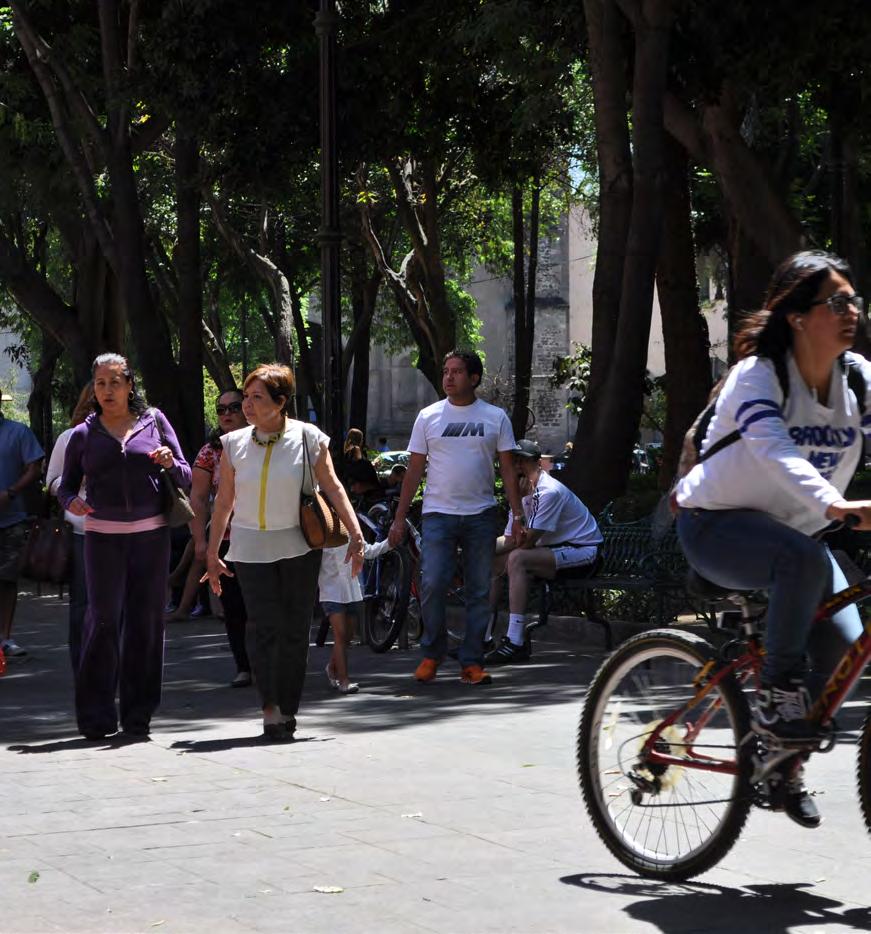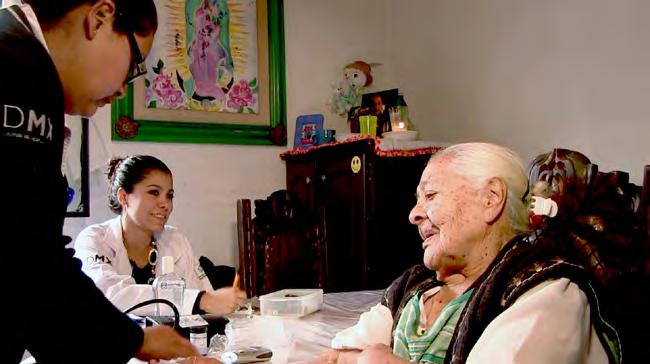
2 minute read
MEXICO CITY, MEXICO
A CITY OF FIRSTS IS STEPPING UP TO THE CHALLENGE OF BENDING THE CURVE
Mexico City was the first city to join Cities Changing Diabetes in 2014, and has truly demonstrated that it is committed to tackling the challenge of urban diabetes. Following the initial research conducted as part of the programme, two concrete interventions were launched: a diabetes clinic in the district of Iztapalapa that provides comprehensive, multidisciplinary, patient-centric diabetes care in one location, and the El Médico en Tu Casa (the doctor in your home) initiative that has made it possible for senior citizens to be screened at home for noncommunicable diseases.
12.7%
OF THE POPULATION IS LIVING WITH DIABETES25
MEXICO CITY CALLS FOR ACTION WITH THE ‘NEW URBAN AGENDA’
Mexico City has not only been working to address the diabetes challenge locally, but also helping to put the topic on the international agenda. In 2016, Mexico City was one of six major cities that called on governments around the world to make health central to the ‘New Urban Agenda’ by focusing on preventing noncommunicable diseases, prioritising health in urban policies and employing new models of collaboration. With the newly formed Interinstitutional Commission, Mexico City is once again taking the lead and stepping up to the challenge.
IMPROVING COLLABORATION AMONG INSTITUTIONS
The Interinstitutional Commission, which was set up by the Ministry of Health under the broad umbrella of the Cities Changing Diabetes programme, sees the integration of three separate institutions related to diabetes prevention and management. In 2019, the commission organised a meeting of representatives from various sectors. Around 30 people attended the meeting, including representatives from health institutions, academia, sport, education, transport and the private sector. The participants came together to specifically discuss the Cities Changing Diabetes programme and talk about how their sectors could collectively work towards reducing the impact of diabetes on the population of Mexico City.
Through collaborative consultation, the commission has determined three work streams: • Creating a strategic approach to the prevention of diabetes and obesity • Establishing a universal set of indicators and measurement parameters to be used by all institutions collecting data related to diabetes and obesity • Working with stakeholders outside the healthcare sector to improve recreational spaces and opportunities for physical exercise.
This new model of collaboration will help to ensure that the Cities Changing Diabetes programme is aligned with the government’s objectives to provide a comprehensive diagnosis of the city in relation to chronic diseases and bring about an overall improvement in the city’s 840 health units.
Secretaría de Seguridad Pública del Distrito Federal (SSPDF)

Secretaría de Salud de la Ciudad de México (SEDESA)
National Institute of Public Health Mexico
World Diabetes Federation
“We’ve managed to observe the importance of providing comprehensive care to the patient with diabetes through a multidisciplinary team, and this is also extended to the entire health sector, considering that this is only achieved through training and resource training, without forgetting the importance of promoting change of habits among the population.”
Alberto Gallardo Hernández, Home Healthcare Attention subdirector, Public Healthcare Services of Mexico City
IN MEXICO CITY 17%
OF ADULTS ARE LIVING WITH PREDIABETES25
34%
OF ADULTS ARE LIVING WITH OBESITY25










